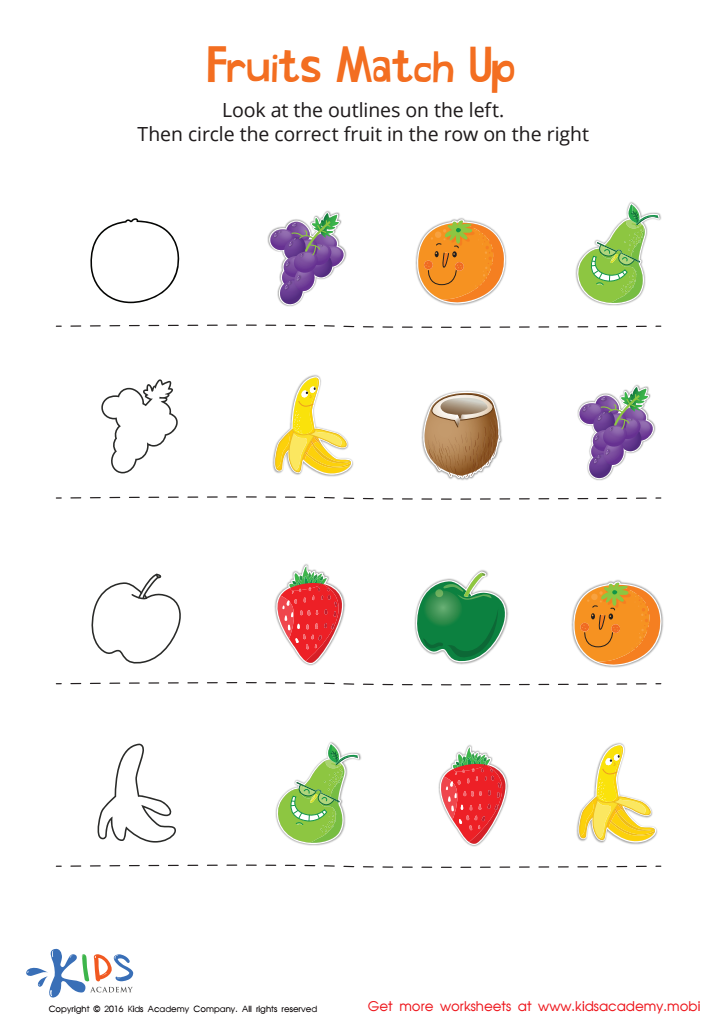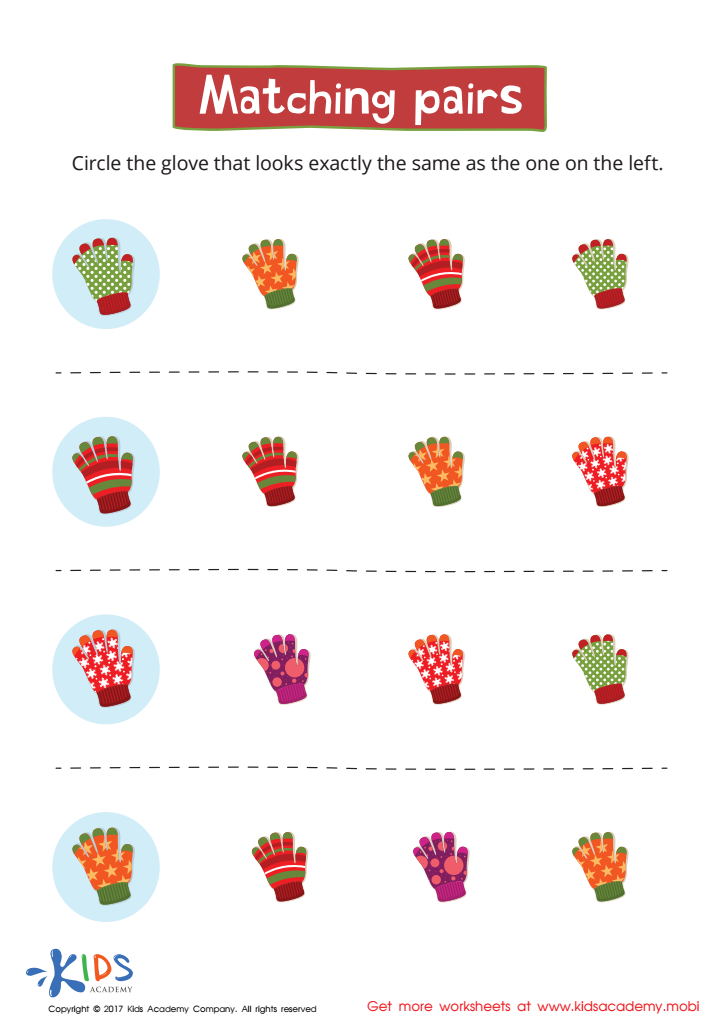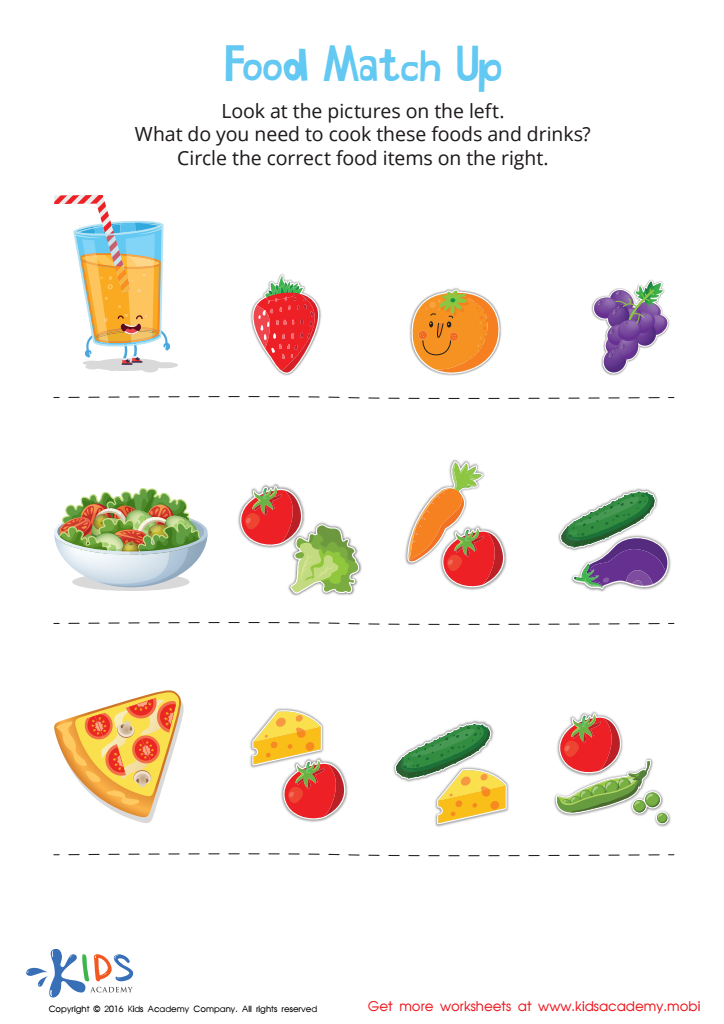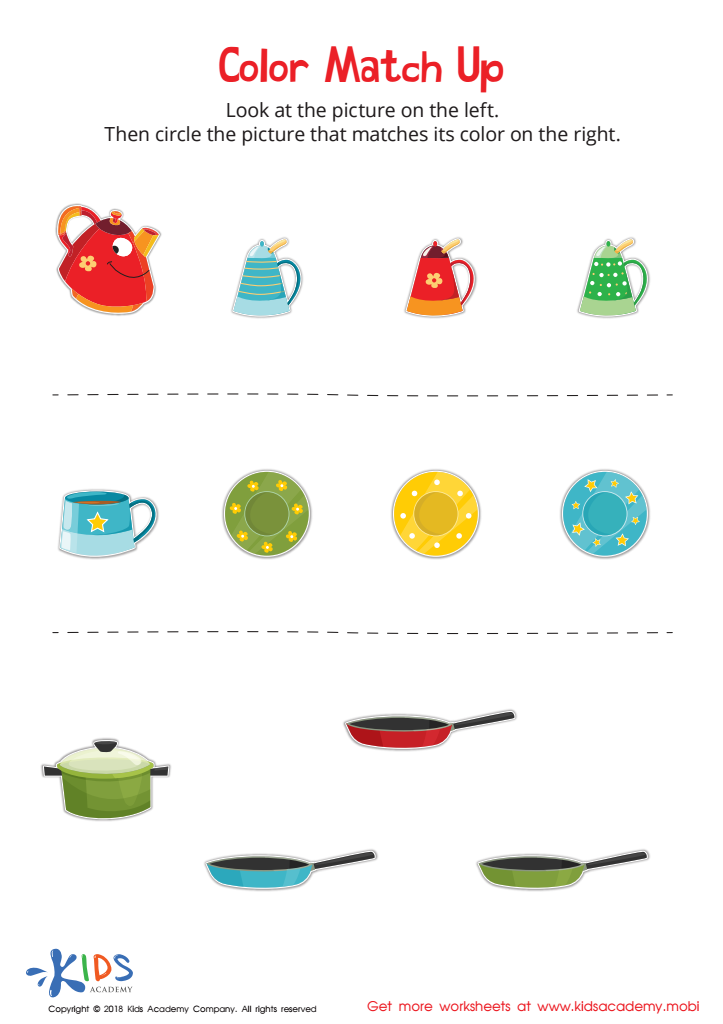Matching skills Normal Matching Worksheets for Ages 3-6
4 filtered results
-
From - To
Enhance your child's cognitive abilities with our "Matching Skills Normal Matching Worksheets for Ages 3-6." These expertly crafted worksheets help young learners improve essential skills such as visual perception, problem-solving, and fine motor coordination. By engaging in fun matching activities, children can develop their ability to recognize patterns, sort objects, and make connections—all while enjoying interactive learning. Perfect for early childhood education, these worksheets provide a solid foundation for future academic success. Dive into a world of learning fun with our matching skills worksheets, specially designed to foster growth in children aged 3-6.


Fruits Match Up Worksheet


Matching: Matching Pairs Worksheet


Food Match Up Worksheet
Parents and teachers should deeply care about developing matching skills in children aged 3-6 because these foundational skills play a critical role in cognitive development. Matching activities help young children learn to recognize patterns, classify objects, and understand relationships between different items. These are essential early skills that pave the way for more complex cognitive functions such as problem-solving and logical reasoning.
Through matching exercises, children learn to observe closely, identify similarities and differences, and make connections – abilities that are indispensable in subjects like mathematics, reading, and science. For instance, matching shapes and colors can prepare them for later concepts in geometry, while matching letters and sounds aids in literacy development.
Moreover, matching activities enhance fine motor skills and hand-eye coordination as children often use their hands to manipulate objects or use a pen or crayon. Emotional and social development is also supported when these activities are done in a group setting, encouraging children to share, take turns, and develop communication skills.
In sum, matching skills are not just about learning how to pair objects; they're about equipping children with the tools they need to understand and navigate the world around them. Prioritizing these skills sets a strong foundation for future academic and life success.
 Assign to My Students
Assign to My Students





















